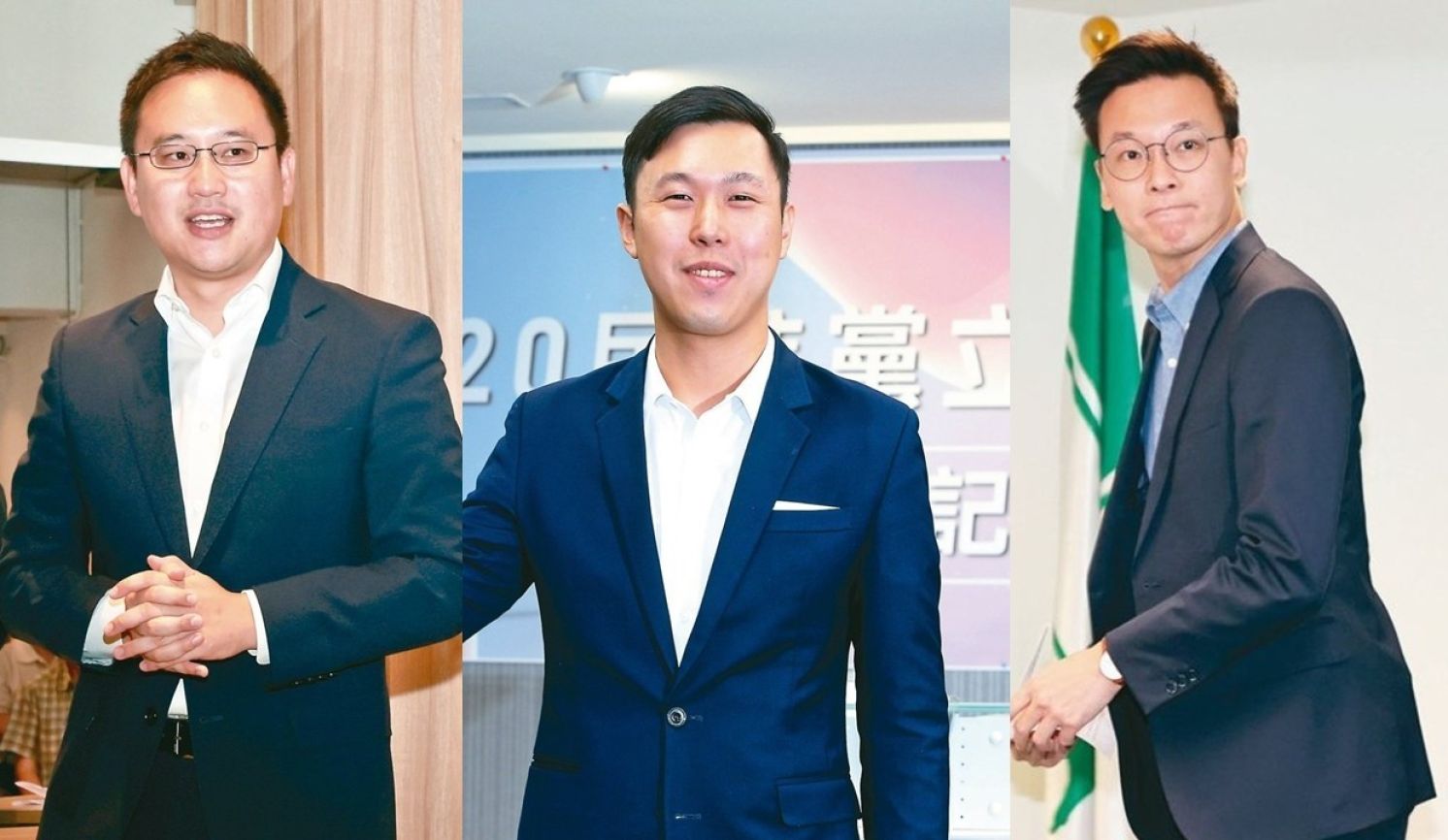
National Security Appointments Should Not Serve as Stepping Stones for President Lai's Protégés to Pad Their Résumés
China Times Editorial, September 3, 2025
The Office of the President recently announced that Deputy Secretaries-General Hsu Ssu-chien and Liu Te-chin of the National Security Council (NSC) will assume new roles as senior advisors, while Taipei City Councilor Vincent Chao and Spokesman Lii Wen of the Office of the President will become NSC deputy secretaries-general, effective immediately. Together with incumbent Deputy Secretary-General Lin Fei-fan, all three are under 37, a youthful shift that has drawn attention. While granting opportunities to younger generations is commendable, the deputy secretary-general position—tasked with involvement in defense, diplomacy and cross-strait policy—is significant, and should not serve as a sinecure for political patronage or a mere stepping stone for political résumé-building.
Lin and Chao both rose swiftly under the former President Tsai Ing-wen, while Lii Wen was specially promoted by President Lai Ching-te. However, except for “interpreter-brother” Chao, who had over two years of experience as director of the political division of the Taipei Economic and Cultural Representative Office in the United States, none of the three have professional background or practical experience in national security—a shortcoming that highlights structural weaknesses in Taiwan’s current national security and foreign policy decision-making mechanisms. It is hardly surprising that bilateral ties with the United States and cross-strait relations continue to deteriorate, reaching near-helpless levels.
Spokeswoman Kuo Ya-hui of the Office of the President stated that the personnel adjustments aim to strengthen Taiwan’s response capabilities amid international, regional developments, infiltration by hostile external forces, and gray-zone challenges. She added that the president hopes to leverage the “rich experience and talents” of the two senior advisors in defense and diplomacy, along with “young talents with professional backgrounds and innovative thinking,” to enhance the NSC’s operational capacity—remarks that appear contradictory.
Although NSC senior advisors are presidential appointees equivalent to ministerial rank within the administrative hierarchy, they typically serve under the deputy secretary-general and secretary-general—former appointees like Yang Yung-ming under President Ma Ying-jeou and Chen Wen-cheng under President Tsai illustrate that progression from senior advisor to deputy secretary-general is common. Thus, while the Office of the President maintains that it values Hsu and Liu’s experience in diplomacy and defense, the appointments in effect represent a “promotion in name, demotion in substance,” clearing room for trusted subordinates.
What is most perplexing is that under the tacit and ambiguous posture of the Trump 2.0 U.S. government toward Taiwan and the escalating trade-tariff conflict, combined with China’s accelerated military modernization to seize greater initiative over Taiwan, cross-strait and external relations have entered uncharted, perilous waters. Yet, the Lai administration counterintuitively assigned key national security roles to three inexperienced young appointees at such a fragile and critical time.
The NSC is the president’s foremost advisory institution, charged with coordinating across ministries. While it lacks executive power, it exerts decisive influence over the broad scope of national security policymaking—earning it the moniker “Supreme Executive Yuan.” However, over the more than one year that President Lai has taken office, the NSC has not effectively fulfilled its intended role. Two high-level national security meetings convened this year failed to address pressing challenges: the February 14 meeting outlined broad strategic objectives on U.S.-Taiwan relations, semiconductor industry development, and cross-strait affairs, but the directives were vague and principle-based, insufficient to counter the shocks of “Trump 2.0.” The March 13 meeting designated China as a “hostile external force,” unveiling President Lai’s 17 strategies to address Beijing’s united-front threats. Such measures risk deepening cross-strait hostility and have already provoked the PRC’s “Strait Thunder-2025A” drills, pushing relations onto a path of no return.
Under U.S. President Donald Trump’s maximum-pressure tariffs, Taiwan faces “20+N%” duties and shifting of supply chains to the United States; tariffs on American agricultural, aquatic, automotive, and related products to Taiwan have been revoked, while Section 232 has ushered in high duties on semiconductors and derivatives, hampering industrial and economic development. Politically, Trump appears to dodge commitments to Taiwan’s security. The Lai administration failed to recognize the escalation to national security level, neglected to activate relevant NSC mechanisms or formulate effective responses, instead leaning solely on a negotiator task-force led by Vice Premier Cheng Li-chun—effectively allowing American demands to go unchecked.
Beyond the NSC itself, power struggles between the foreign affairs and national security apparatus also undermine Taiwan’s diplomatic capacity. Secretary-General Joseph Wu, who formerly served as representative to the United States and Minister of Foreign Affairs—regarded as a “godfather of diplomacy”—believes he still wields influence over the Ministry of Foreign Affairs, and before departing proposed personnel recommendations. Now, incumbent Minister of Foreign Affairs Lin Chia-lung, driven to assert his own authority, has largely overridden Wu’s suggestions. The dispute over the U.S. representative nomination further exposed rifts, weakening Taiwan’s diplomatic cohesion.
Rumors proliferated since last year regarding a replacement for Ambassador Alexander Yui, representative to the United States, with names such as Secretary-General Joseph Wu; Ambassador Harry Tseng, representative to Canada; and recently Hsu—yet MOFA immediately clarified there are no personnel plans currently. As Taiwan’s most important diplomat abroad, the representative to the United States must possess Taipei’s full trust and authority. Without that, Ambassador Yui cannot earn American respect or attention, making his representative duties markedly more difficult.
With global geopolitical landscapes shifting rapidly and domestic political and economic challenges mounting, the Lai administration’s mismanagement leaves Taiwan caught in a predicament both abroad and at home. Relying on nepotism, disregarding national security risks, and fielding an inexperienced “second-string” team, Taiwan’s security is under serious threat. The Lai administration must not treat this lightly.